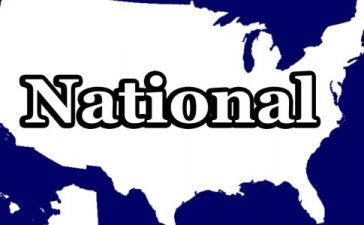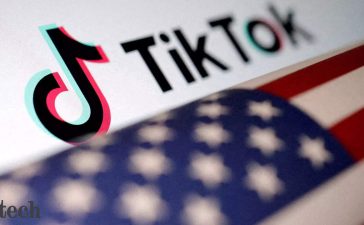IT’S DIFFICULT TO KNOW what to make of Gov. Maura Healey’s task force on transportation funding. Is it serious about trying to tackle one of the toughest issues in state government or is it turning into just another wheel-spinning exercise?
It was billed initially as something different from all the other similar task forces that have come before it. This time, Healey administration officials said, the task force would settle on a way to sustainably fund the transportation system of the future – everything from MBTA General Manager Phillip Eng’s hiring spree at the T and the T’s $25 billion state-of-good repair backlog to bridge and roadway repairs in an age when the gas tax is expected to decline in importance.
Many on the panel thought it would settle on a funding target and then work backward to find the best options to reach that target. Transportation Secretary Monica Tibbits-Nutt said nothing was off the table, but then she delivered an unusually frank speech to WalkBoston in which she listed a bunch of taxes and fees she was eyeing, including tolls at the state’s borders, and the resulting outcry prompted Gov. Maura Healey to take border tolls off the table and say that she wasn’t even focused on raising taxes.
Hayes Morrison, the undersecretary of transportation, gave an update on the task force’s progress at this week’s MassDOT board meeting that made it sound as if it started pretty much from scratch using a very touchy-feely approach. She said the task force has spent a lot of time educating and gathering information from its members, culminating in a recent “share-up strategy” session.
She said upcoming task force meetings will focus on federal funding possibilities, “safe and reliable and connected transportation,” and climate and sustainability. She said special focus groups, including people from organizations not represented by task force members, will focus on “sources and uses” and “opportunities and impacts.” By November, she said, the focus groups will start zeroing in on what to include in a “tool kit” to give to the governor. She promised the tool kit would be delivered to the governor by December 31 – “or earlier, but I wouldn’t bet on it.”
The MBTA board of directors on Thursday was also briefed on the revenue potential of 10 tax and fee increases that the Boston Regional Metropolitan Planning Office has been studying, including assessments on vehicle users, road usage fees (tolls), and hikes in sales, meals, and room occupancy taxes.
The analysis has been circulating for months and contained nothing new. Still, wary of stepping on a political land mine, Tom Glynn, the chair of the MBTA board, explained that the analysis was just an analysis. “You’re not proposing anything and we’re not proposing anything,” he said.
Another cold shoulder for Wu tax plan
Add the Massachusetts Taxpayers Foundation to the list of groups taking a dim view of Mayor Michelle Wu’s proposal to shift more of Boston’s property tax burden onto commercial buildings to make up for the anticipated hit to city revenue from declining office building valuations.
The watchdog group released a report this week saying the proposal would only make things worse for the beleaguered commercial property sector, where office vacancy rates stood close to 25 percent in the first quarter of 2024, a sign that the remote work patterns of the pandemic are getting baked into the way things will be.
The city proposal “adds significant additional cost to the property sector facing the gravest long-term challenges,” the report says.
Boston already taxes commercial property at a much higher rate than residential property. The Wu administration is now asking the Legislature to approve a home-rule petition that would allow it to temporarily raise those rates even higher than what’s allowed by state law. Without the change, city officials say residential taxpayers would see a big spike in their tax bills.
“Mitigating those spikes is absolutely good policy,” said MTF president Doug Howgate. But he argued that the solution is not to add to the tax burden of the sector struggling the most in the new post-pandemic reality.
Echoing calls for fiscal restraint sounded recently by the Boston Municipal Research Bureau and Greater Boston Chamber of Commerce Chief Executive Jim Rooney, the MTF report urges, among other things, that Boston ease the tax crunch by slowing its budget growth and not increasing taxes for 2025 by the full amount permitted under Proposition 2½. It also calls for diversifying revenue streams so that the city is less reliant on property taxes, and says use of some reserve funds would be in order.
Over the longer term, Howgate said, the city should be aggressively moving to convert unused office space to residential units and look to further promote tourism, which has bounced back from the pandemic, and can play an important role in bringing back downtown vitality.
The city’s tax proposal is awaiting action on Beacon Hill, with the clock running down on the legislative session, which ends on July 31. Its prospects seemed uncertain from the start. The steady drumbeat of voices from the business community speaking out against the plan seems likely to only further diminish its chances.
Healey makes ethics disclosure
It’s not uncommon on Beacon Hill for individuals advocating for legislation or regulatory approvals to make campaign donations to those who can make it happen. Gov. Maura Healey, at least in one area, feels such donations need to be disclosed in filings with the State Ethics Commission.
In late February and in March, a board member and a vice president at Crowley Wind Services – both of them from Saint Johns, Florida — donated $500 each to Healey’s campaign. Crowley is a big player in the emerging Massachusetts offshore wind industry, both in New Bedford and in Salem, and the donations were made at a time when the company was seeking approval of a state waterways license.
Healey in early April disclosed the contributions in a filing with the Ethics Commission to dispel the appearance of a conflict of interest. “Taking into account the facts that I have disclosed above, I feel that I can perform my official duties objectively and fairly,” she said by checking a box on the Ethics Commission form.
Aides to Healey said she has made similar disclosures when signing previous waterways licenses.











